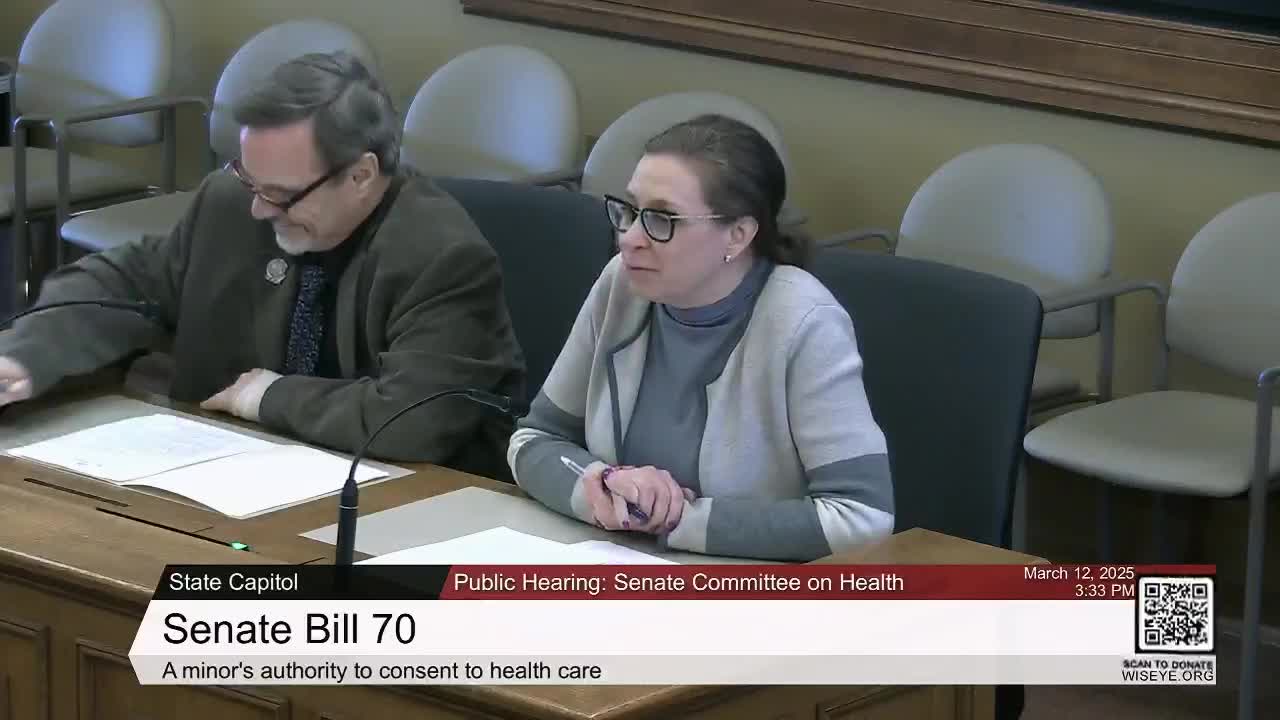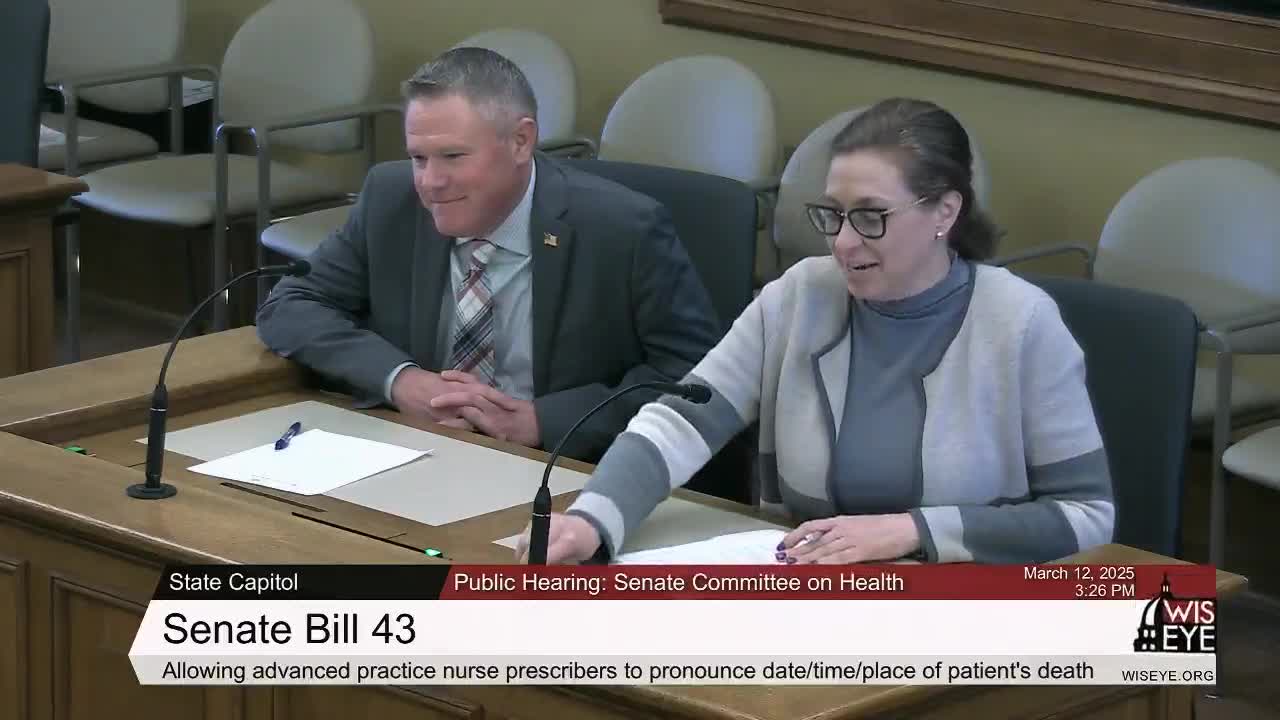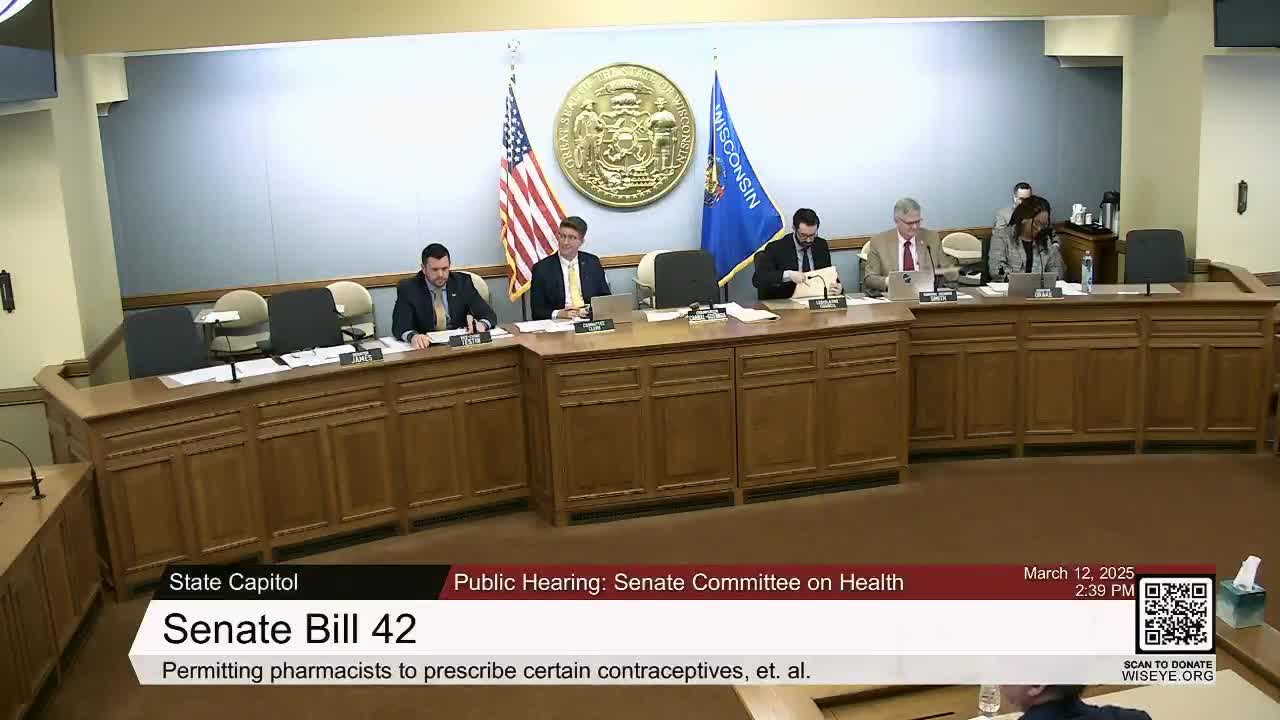Article not found
This article is no longer available. But don't worry—we've gathered other articles that discuss the same topic.

Committee hears support for bill allowing unaccompanied minors to consent to medically necessary care

Committee hears brief support for allowing nurse practitioners to pronounce death

Senate hearing: proponents push pharmacy access to prescription contraceptives; opponents cite safety and conscience concerns

